You probably have seen a lot of people planting clover on their lawn, which got you thinking, Why are they planting clover instead of grass? Will it not negatively affect the soil and other plants around?
You can grow a lawn full of clover too, and it’ll be worth it! So how fast does clover grow from seeds? Very fast! It takes a very short time for them to start growing under the right conditions.
Here’s everything you need to know about growing a clover lawn, how it’ll affect your soil, and its pros and cons.

- How Fast Does Each Type of Clover Grow From Seed?
- How Can You Prepare the Soil for Clover?
- How Do You Plant Clover Seeds?
- When and Where Should You Plant Clover Seeds?
- How to Take Care of Clover
- Why Do People Grow Clover on Their Lawns?
- Does Clover Affect the Growth of Grass?
- Final Thoughts on How Fast Does Clover Grow From Seed
How Fast Does Each Type of Clover Grow From Seed?
If you’ve been thinking of covering your lawn with clover, you may be thinking, How long does clover take to sprout? If you prepare the soil properly and plant the seeds in season, most clover seeds germinate in two to three days, especially in warm weather.
In the off-season, clover seeds germinate in seven to ten days. The time to reach their full-grown height also varies considerably based on their environmental conditions, but they usually take a month to grow fully and give flowers. The seeds are ripe at least seven weeks after flowering.
Factors That Affect Clover Seeds Germination
Here are the factors that affect the germination and growth of clover from seeds:
- Weather
- Soil pH
- Water
- Soil preparation
- The season in which you’ll be planting
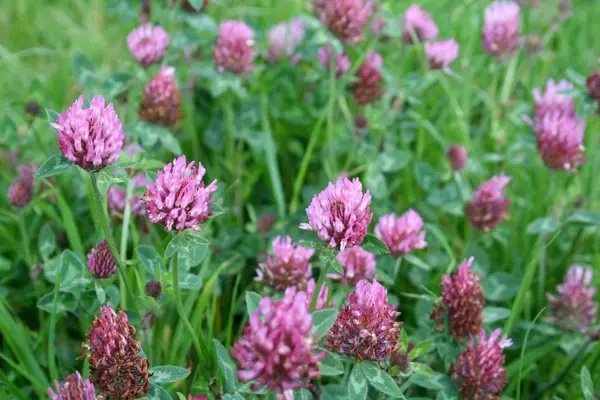
How Can You Prepare the Soil for Clover?
Now that you know how long it usually takes clover seeds to germinate and grow to give you flowers, you need to know how to create the perfect environment for your clover to grow properly. You’ll need to start preparing at least a month ahead of planting.
Determining Soil Health
First, decide which variety of clover you want on your lawn. Then test the pH of your soil. Generally, the ideal pH to bloom clover is 6.0 to 7.0, but some do well in 8.5 pH alkaline soil, and some thrive in acidic soil with pH 5.0.
Besides, you need to identify the nutrients of your soil and if there is any mineral deficiency. Remember that salty or saline soil is an enemy for some clover varieties.
Treating the Soil
Balance the soil pH with lime to raise the pH level or peat moss to lower the high pH level. Buy a few varieties of clover seeds and path-test them first to see which grows the best on your lawn.
Then treat the soil with a systemic weed killer. This will kill any weeds from within. You may need to wait for two to three weeks for the weedicide to work appropriately and then wear off. Then till the soil so that any residual weeds regrow so you can uproot them.
Don’t forget to water the soil regularly, as clover seeds germinate well in soil with ample moisture. Water will also help you to wash out excess herbicides that may damage your clover seeds.
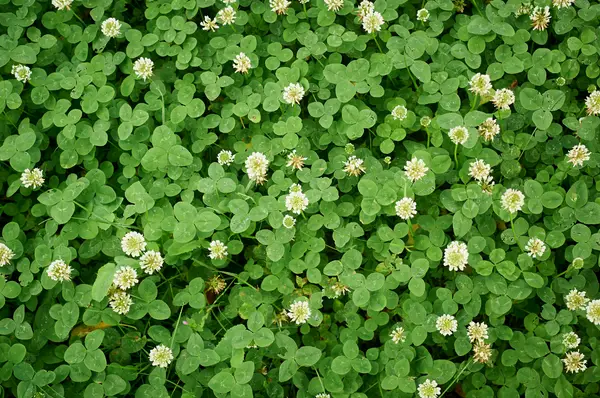
How Do You Plant Clover Seeds?
Before you start planting clover seeds in the prepared soil, remember that these seeds are very small and light. This means they may not spread evenly across the soil, resulting in some spots getting an excess amount of clover seeds.
Mix clover seeds thoroughly with unfertilized soil, sand, or sawdust so that they distribute evenly. Spread the mixture on your prepared lawn with your hand or a leaf rake by turning it upside down.
After that, rake the soil to spread a thin layer of soil over the seeds. This will keep them from getting blown away by the wind or eaten by predators. Make sure you aren’t raking more than a quarter of an inch into the soil.
Water the soil regularly to keep the seeds moist. Don’t use fertilizer to prevent weeds from growing, and test the soil occasionally for minerals and the pH level.
Recommended Clover Seeds
| Image | Title | Prime | Buy |
|---|---|---|---|
Top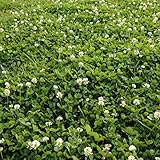 | Outsidepride White Dutch Clover Seed for Erosion Control, Ground Cover, Lawn Alternative, Pasture, Forage, & More - 2 LBS | PrimeEligible | Check My Price on Amazon |
 | Outsidepride Crimson Clover Legume Seed for Pasture, Hay, Green Manure, Cover Crop, Wildlife Forage, & More - 5 LBS | PrimeEligible | Check My Price on Amazon |
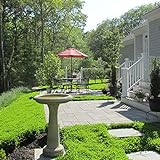 | Outsidepride Perennial White Miniclover® Lawn Clover & Ground Cover Seeds - 1 LB | PrimeEligible | Check My Price on Amazon |
 | Outsidepride Red Clover Legume Seed for Pasture, Hay, & Soil Improvement - 2 LBS | PrimeEligible | Check My Price on Amazon |
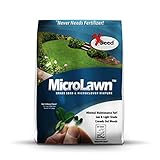 | X-Seed 440AS0135UCT-5 MicroLawn Grass & Micro-Clover Mixture, 5 lbs, White | PrimeEligible | Check My Price on Amazon |
When and Where Should You Plant Clover Seeds?
Mostly, you’ll see people planting two common types of clover—white clover and micro clover. Some people also plant clover seeds that are already coated with nitrous-fixing bacteria.
Depending on the species, clover can be an all-year-round plant, also known as perennial, or an annual plant. However, it’s best to follow a time and temperature when planting clover seeds.
When Should You Plant Clover Seeds?
Before you start planting the seeds, ensure that the season and the weather are appropriate for the seeds to germinate properly. The temperature should ideally be above 55 degrees F, and there shouldn’t be any frost on the ground. Otherwise, it’ll kill the seeds.
The best seasons are summer and spring. If you’re planting clover in spring and you get a lot of snowfall in your place, ensure that the last frost has passed. And if you live in an area where winters aren’t freezing and there’s no snowfall, then you can plant clover all year round.
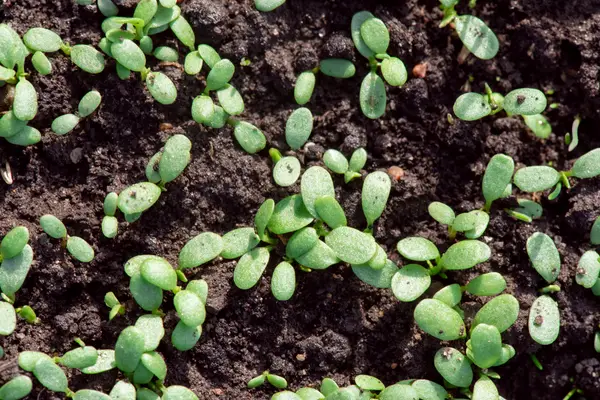
Where Do You Need to Plant the Seeds?
It’s normal that all places on your lawn won’t get the same amount of sun. Therefore, pick a location that is mostly sunny and may have partial shade. Clovers are tough, so they won’t mind having a little partial shade if they get enough sunlight daily.
Remember, clover needs at least four hours of sunlight for proper growth, whether it’s a seedling or full-grown clover. If you need to, trim bushes, trees, and hedges to ensure the clover patch gets enough sunlight to make its own food and fertilizer.
How to Take Care of Clover
Honestly, clover is a very low-maintenance plant. You just need to ensure it has enough light and the perfect temperature when it’s just a seed and that it gets enough moisture.
You need to keep one thing in mind, though. Clover needs a good amount of water to grow, but the water can’t stand still. Your lawn needs to have a good drainage system. Also, full-grown clover may be able to withstand drought, but seedlings will dry out and eventually die.
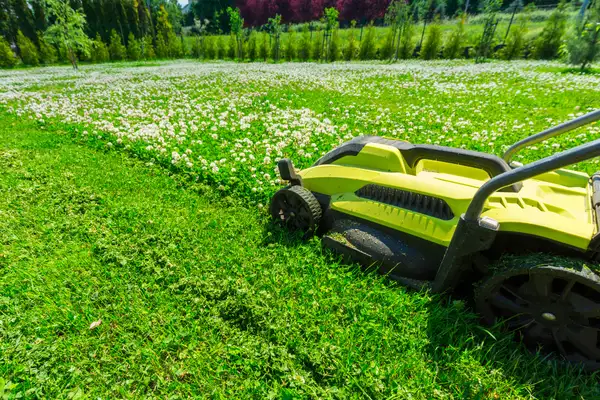
Why Do People Grow Clover on Their Lawns?
As we said before, you’ll find white clover and micro clover more commonly on most lawns, and sometimes you’ll see people planting nitrous-coated clover seeds.
The white clover grows up to 8 inches in length, which means the lawn will look full while not creating issues with walking around. The micro clover is a durable plant with short stems and leaves, and it can easily grow alongside grass.
For Further Reading
- Ecoscrapts vs. Milorganite: Which One Should You Choose?
- 8 Essential Tips for a Lush Green Lawn All Year Round
- 9 Native Grasses for Gardeners in Southern California
- Grass Spray Paint: Secret Hack to Keeping Your Lawn Green
Benefits of Planting Clover
Of course, having clover all over your lawn will make it look nice, green, and lush and will also feel soft. But there are other benefits that clover can offer your lawn soil.
Clover is a legume that has specific bacteria in its roots. These bacteria produce nitrogen, making this cover crop a significant source of nitrogen for your soil, reducing the need for any nitrogen-based fertilizer for a long time. When it decays, it adds a healthy amount of nitrogen to the soil.
Clover doesn’t allow other weeds to grow. It also reduces soil erosion. It’ll help your lawn soil to hold moisture and will drain any pollution. If your clover crops flower in season, it’ll attract bees and other insects, which will help to pollinate and create more clover.
It doesn’t just add nitrogen to the soil. The nitrous-fixing bacteria also help in synthesizing other essential nutrients in the soil and pull more good things from the air, enriching the soil with nutrients and minerals.
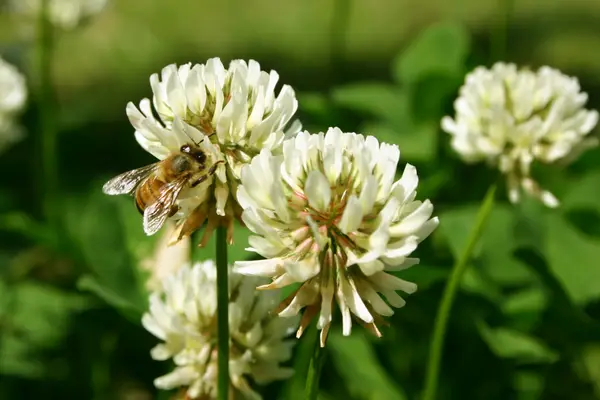
Does Clover Affect the Growth of Grass?
No, clover only affects the growth of other unwanted weeds in the soil. Grasses can grow well with clover, and a mix of both can make your lawn look nice as well.
However, if the grass in your lawn tends to grow taller than the clover, then trim it regularly. Otherwise, the grass won’t allow sunlight to reach the clover effectively, stunting its growth.
If you’re planting the clover in a place that has a garden nearby, then you need to build a barrier before you plant your clover seeds. Otherwise, clover crops will creep in and may hinder the growth of your garden.
Final Thoughts on How Fast Does Clover Grow From Seed
Clover is a nice addition to your lawn if you want it to look lush and green all year long while not having to maintain it as much. Most of the work occurs before and during the seed planting stage. The soil will also be nutrient-rich, preparing it for any future plan you have for the lawn.
We hope that you’ll find all this information helpful and have a healthy clover lawn.
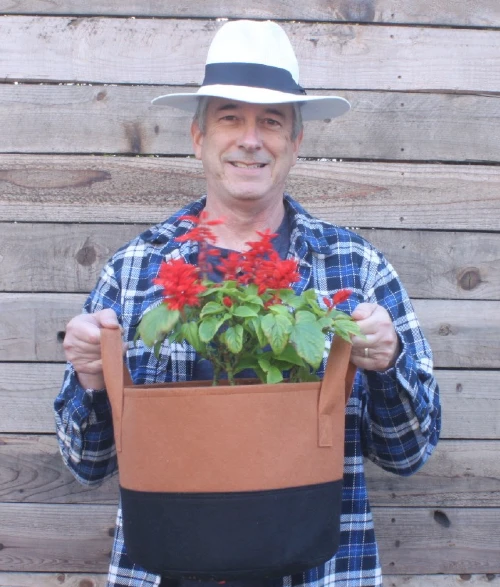
Darrell has a passion for gardening that he inherited from his father. Go here to read more about the influence his father played in his love for gardening. If you want to send Darrell a quick message, then visit his contact page here.

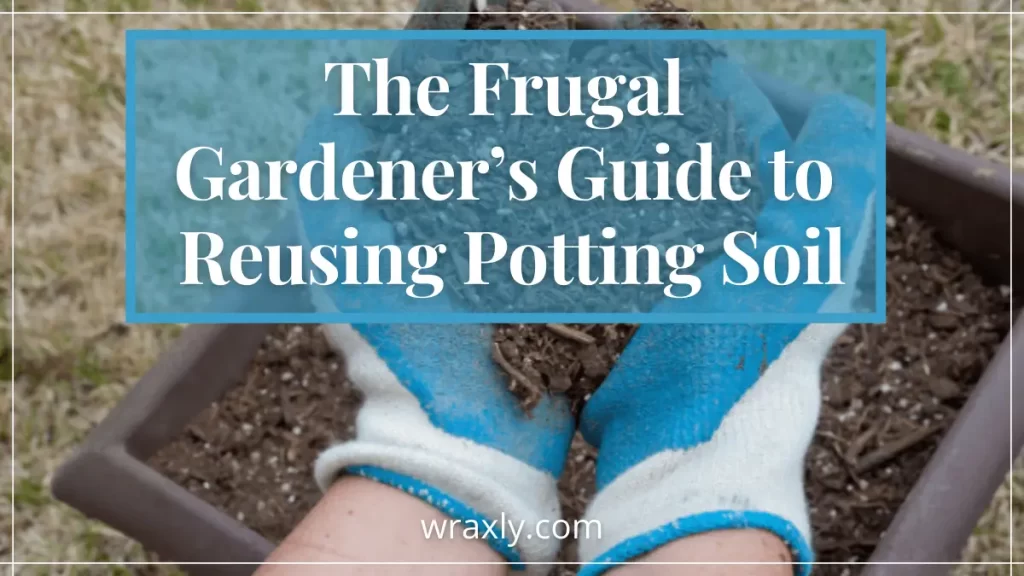

![10 Common Container Garden Mistakes to Avoid [Beginner’s Guide]](https://wraxly.com/wp-content/uploads/2021/02/10-Common-Container-Garden-Mistakes-to-Avoid-Beginners-Guide-1200-1024x576.webp)